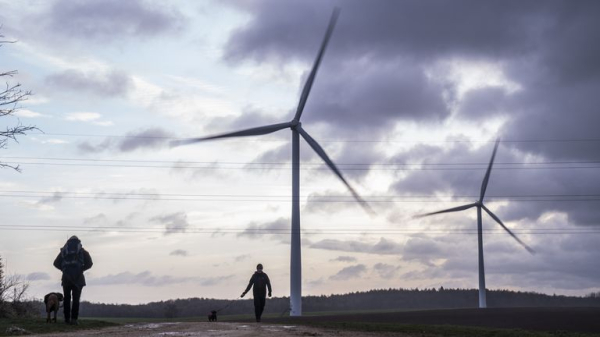
The government is clearly committed to delivering UK-owned clean power, but can it deliver on its promise to consumers?
Given the interventions in their first three weeks in power, it’s hard to criticise Labour’s commitment to clean power by 2030.
Ed Miliband, the energy and net zero secretary, has already removed bans on onshore wind power, changed planning rules to expedite projects and green-lit two controversial solar farms held back by the previous government.
Now we have another clear display of intent with the launch of Great British Energy (GBE) – one of Labour’s five key missions for this parliament and central to the government’s green energy goals.
Politics latest: Starmer accuses Tories of leaving UK ‘exposed’

According to officials, GBE will have two key roles – as a project developer and a co-investor in new low carbon energy.
This will ensure the government delivers on its pledge to create an energy firm owned by taxpayers, generating cheaper electricity in the UK.
The partnership between GBE and the Crown Estate – the independent business owned by the monarch for the duration of their reign, which owns and leases out parcels of the seabed to offshore wind developers – is part of the project developer role.
It will, says the government, identify and approve sites in advance, ensuring they’re in the right part of the UK to best fit with power demands and electricity grid requirements.
It would then effectively lease these parcels on “with planning permission” to developers.
This could, the government claims, halve the ten or 15 year process of getting big offshore wind projects up and running.
By leasing more seabed and taking stakes in new wind projects, it’s easy to see how GBE could bring in revenue and – by building more local and low carbon energy – deliver savings for customers by insulating them from the price shocks from imported gas.
But there’s a lot more to do.

To handle all the rollercoaster of electrons flooding in from variable wind and solar projects, the UK needs a completely upgraded electricity grid, batteries, hydropower or hydrogen to store surplus power for windless days and dark nights, as well as new ways of pricing electricity to see consumers benefit.
Through GBE, a “mission control” to coordinate all of the above and a Warm Homes Plan, the government says it is putting all the components in place it will need to deliver its plans.
If all that happens, there’s no doubt it could succeed in delivering a green power revolution in the UK.

Follow Sky News on WhatsApp
Keep up with all the latest news from the UK and around the world by following Sky News
Tap here
Can GB Energy cut the cost of bills?
What’s much less certain is whether they can deliver in time to satisfy their campaign pledge to “save families hundreds of pounds on their bills, not just in the short term, but for good”.
Can consumers really expect to see GB Energy deliver savings before the next election? It’s a big ask.
The deal with the Crown Estate might bring forward new projects five years from now.
Retooling the grid is under way, but far from complete.
More onshore wind and solar may happen quicker, but represent only about half of the 85 gigawatts of clean electricity the government says it wants to get built to meet its 2030 target.
Even GBE won’t formally exist until the act of parliament needed to create it is passed and it has selected a chief executive and staff.
And with only £8.3bn of money behind it over the next five years, it will only be able to afford minority stakes in new power projects.
According to polling, GB Energy is a popular policy – even among non-Labour voters. Delivering net zero is also necessary under the Climate Change Act.
The last government was committed to broadly similar targets even though they lacked credible plans to get there.
But if the opposition chooses to oppose Labour’s energy splurge as poor value for energy customers, Keir Starmer may not have much to show for it the next time the country goes to the polls.

